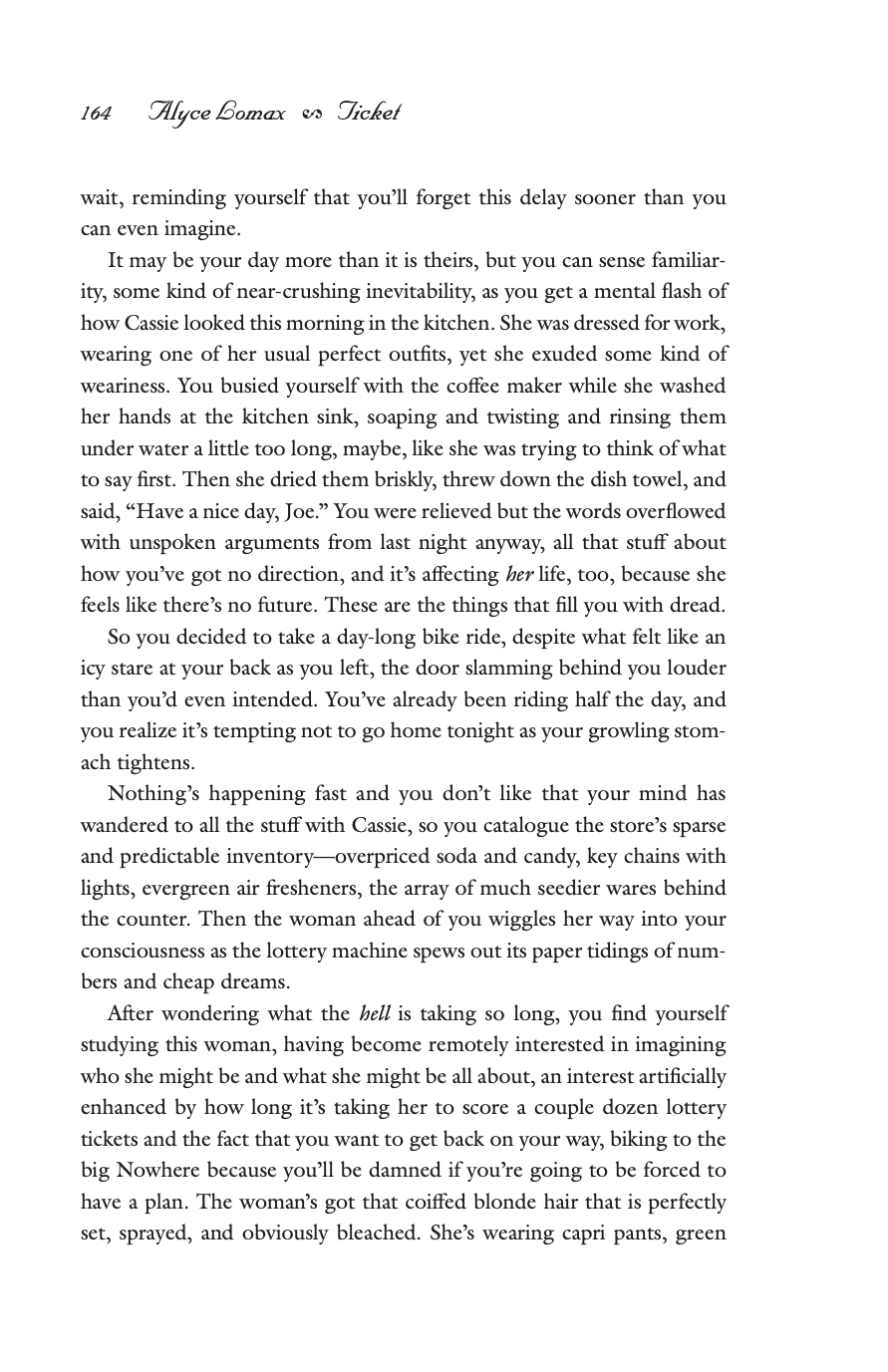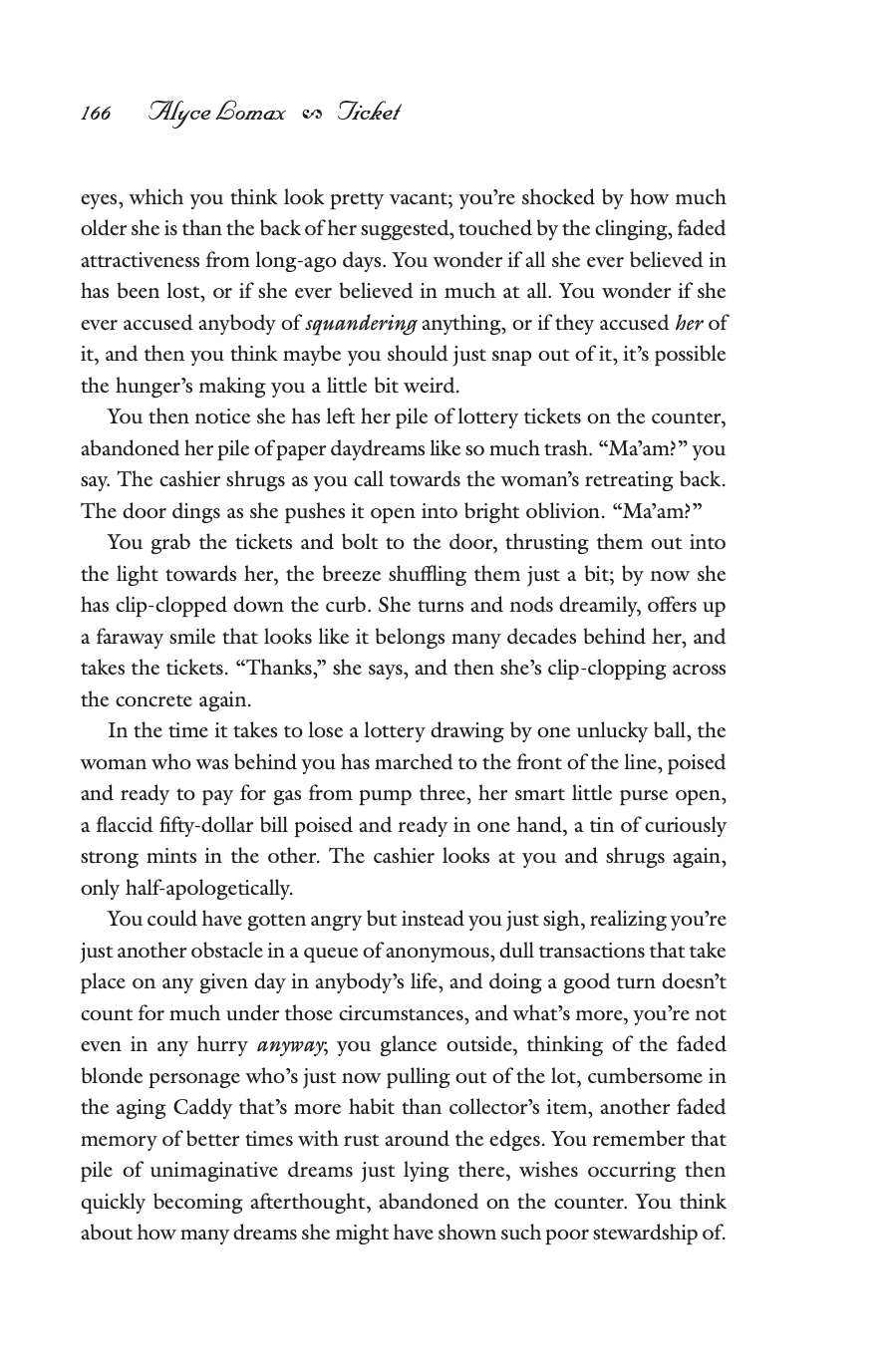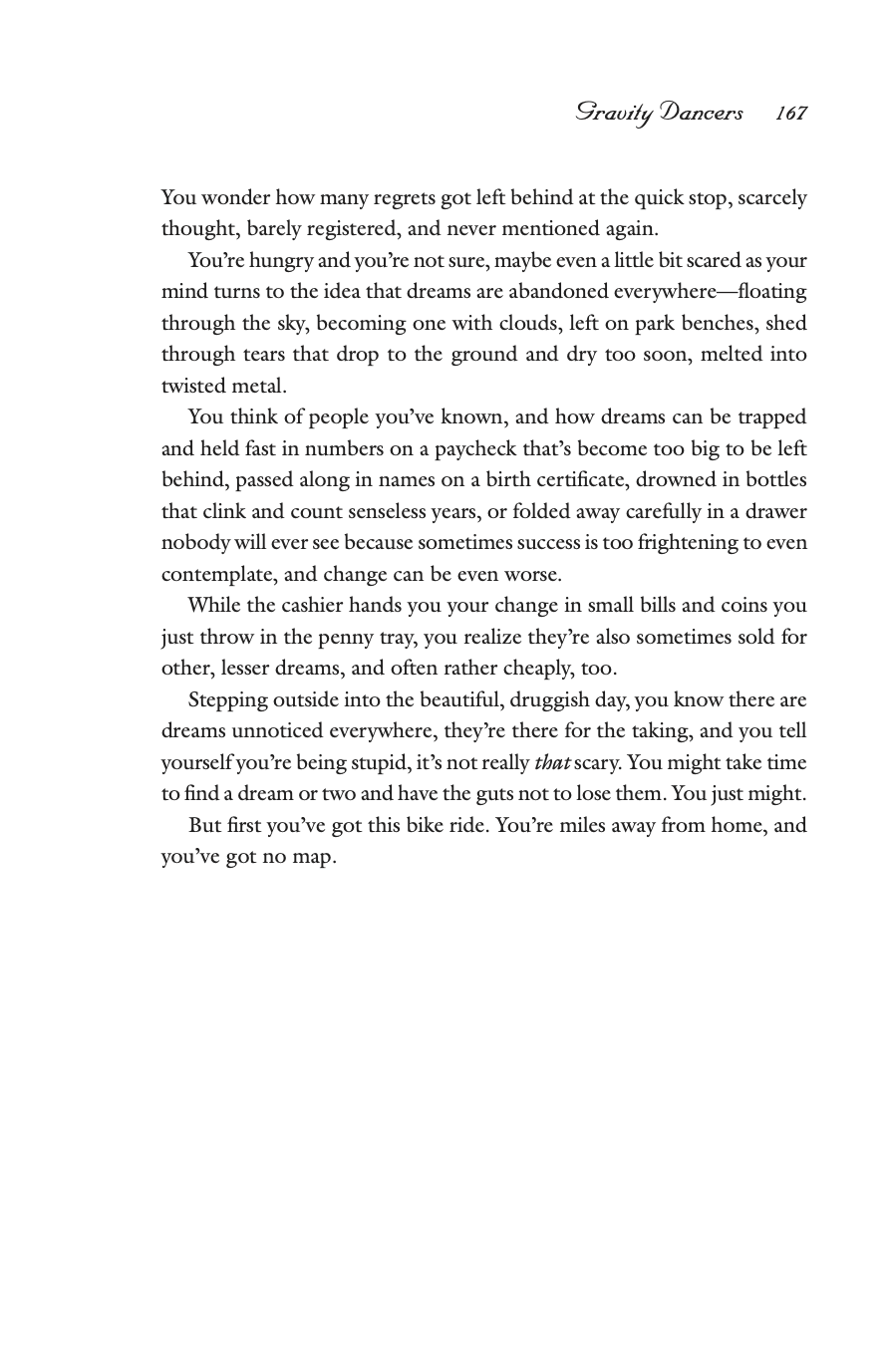 Alyce Lomax’s work has appeared in Gargoyle, Coffin Bell Journal, The MacGuffin, Pindeldyboz, and many others over the years. She is a resident of Alexandria, VA. Jane Palmer is a professor, researcher, activist, and part-time MFA in creative writing student in Washington, DC. She writes poetry, creative non-fiction, picture books, and academic journal articles. For the past 25 years, she has dedicated her waking life to dreaming of - and working toward - a world without violence. Twitter: @jane_e_palmer Introduction to "Ticket" by Jane PalmerA plane ticket gets you somewhere you’ve dreamed of visiting. A concert ticket gets you to a band you’ve dreamed of seeing. In Alyce Lomax’s short story, “Ticket,” lottery tickets rarely get you anything but a daydream. When I have purchased lottery tickets, it is fun to daydream about what I might do with a pile of money - the places I might go, the people I might help, the debt I might pay off. Whenever I see someone buying tickets at a gas station or convenience store, I imagine they will be the one whose life is forever changed by randomly selected numbers. I root for this stranger who may have reached a point in their life where “chance” is their only choice. I don’t expect I’ll ever have a pile of money to pass on to my child, but I think my love of daydreaming is among what will be inherited. Each morning, my pajama-clad 5-year-old wakes me up by asking: “Mommy are you awake? Can we play the ‘honk shoo’ game?” This is a game we created where the number of times you say “honk shoo” (to sound like a snore) is the number of dreams you had overnight. We take turns telling the other about each of our dreams, which are usually stories we make up because neither of us are great at remembering our dreams. The other morning, the rules changed: “This time, can we play that they can be the dreams you had last night or they can be the other kind of dreams? Like the ones you want to happen someday?” So, a Kindergartener and a 44-year-old now start their days dreaming of the future they’d like to see. Lomax’s story of dreaming “Ticket” takes place the day after a man named Joe had a fight with his partner, Cassie. She accused him of having no direction in his life. In response, he takes a day-long bike ride without a map. This isn’t surprising, as he notes he doesn’t want to be forced to have a plan on bike rides or, it seems, for his life. Along the way “to the big Nowhere,” Joe stops at a convenience store for a snack. As he waits in line to pay for a granola bar, he watches the woman ahead of him buy a couple dozen lottery tickets. He begins to imagine “who she might be and what she might be all about” with her pink Cadillac, long fingernails, hair sprayed blonde hair, platform shoes, and a tropical print blouse. When she turns around, Joe realizes she’s much older than he expected, and wonders “if all she ever believed in has been lost, or if she ever believed in much at all.” I wonder whether Joe is thinking about this woman, or whether he is still ruminating on the conversation with Cassie about his lack of future plans from the night before. After paying for her gas and tickets, she walks out, leaving the tickets on the counter. He chases after her to hand her the “abandoned pile of paper daydreams.” After this encounter, Joe realizes that “dreams are abandoned everywhere.” In his emotional 2023 Oscar acceptance speech, Ke Huy Quan said, “Dreams are something you have to believe in. I almost gave up on mine. To all of you out there, please keep your dreams alive.” When my 5-year-old tells me about a plan to invent a “disintegrator gun” that would make litter disappear and make plants and flowers appear instead, I don’t want this beautiful idea to become an abandoned dream. What does it take to keep dreams alive? Is this type of convenience store where you find yourself when your dreams cannot - or don’t - come true? Is the buying of lottery tickets a habit among those with dreams that are - or were - otherwise unattainable? At what point are dreams abandoned like a broken umbrella sticking out of the top of a trash can? How can I help advance my child’s countless beautiful dreams? These are some of the questions that come to mind as I read Lomax’s story. Lomax’s use of second person helped me feel connected to the main character, with whom I might otherwise have very little in common. At first, I felt part of the story, as if I left my home that morning for a long bike ride on a beautiful day. Once I realized the main character was a man named Joe, I think the second person that “put me in his shoes” helped me feel empathy for him. He seemed a little lost in life and I wanted to know more about him. I found myself wondering more about where his - and, later, the lottery ticket buyer’s - dreams went and who or what made them disappear. I wondered what dreams Joe abandoned along the way before he got to this point in his life. I also wondered what dreams his partner, Cassie, has abandoned as she waits for him to figure out his next step. Toward the end of the piece, there is a hauntingly beautiful paragraph about dreams that get trapped – in our paychecks, birth certificates, beer bottles, or “folded carefully in a drawer” – that made me stop reading to consider where I’ve hidden my own dreams. Where have all my broken umbrellas ended up? Lomax’s strong descriptions of the sky, the convenience store, or the woman ahead of him in line meant I could visualize the story as if it were happening in real time. I stood in line at the convenience store, complete with its smell of motor oil. I felt Joe’s impatience as he waited for the woman to finish her transaction. Lomax’s use of present tense also created an immediacy of Joe’s situation, as if it were today. It helped me be drawn into his story - will he listen to his temptation to not return home? Will this bike ride mean anything to his relationship or his next steps? Will he “take time to find a dream or two and have the guts not to lose them”? Some dreams are fictional futures that will never materialize, but others can come true given the right circumstances. Consider Quan’s unexpected trajectory from a refugee camp to child star in Indiana Jones and Goonies to winning an Oscar 40 years later. Toward the end of Lomax’s story, we get a hint that having a dream – or a destination – might be a scary prospect to Joe. It is scary to go after a big dream, but it is also heart wrenching to abandon a dream. Most refugee kids, no matter how talented they are, don’t go on to win an Oscar. Some kids who dream of becoming inventors become accountants instead. Daydreams can float away into the ether, like the nighttime dreams that disappear as soon as you open your eyes to a new day. In a 2020 interview, Lomax said: “I think giving up too easily on things you want is a mistake, and trying again, sometimes repeatedly, can really pay off.” Inventors know this, and I will be sure my child learns this along the way. By the end of “Ticket” we are rooting for Joe, confident he’ll find his way, even though he is without a map.
0 Comments
Leave a Reply. |
Categories
All
|





 RSS Feed
RSS Feed